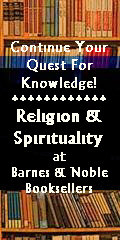
May You Be Blessed by the God of Your Heart |
The Geography of HumanismThe Essentials of the FaithFounded: Humanism was founded by the poet Petrarch in the fourteenth century by applying questions of humanism from Greek philosophy to Christian thought. Desiderius Erasmus and Thomas More wrote important humanist works criticizing the Church during the Renaissance. Secular Humanism is a movement which was never founded, but one which has come of age with the rise of science. Significant figures include both secular and religious humanists Auguste Comte, John H. Dietrich, G. J. Holyoake, and T.H. Huxley. Philosophers such as Immanuel Kant laid the groundwork for the emergence of Secular Humanism. Writers such as Charles Darwin, Emile Durkheim, Karl Marx, and Bertrand Russell have all made significant contributions to the rise of secular humanism. Adherents: Humanists are widely distributed across the world and are scattered throughout the spectrum of modern society. Secular Humanists are more concentrated in western and socialist societies. Distribution: Secular Humanists are sometimes hard to classify, and perhaps even more difficult to obtain demographic data about. The following distribution lists two groups: Nonreligious and Atheists. Nonreligious are defined as persons professing no religion, nonbelievers, agnostics, freethinkers, and dereligionized secularists indifferent to all religion. Atheists are defined as persons professing atheism, skepticism, disbelief, or irreligion, including antireligious (opposed to all religion). These terms and figures were obtained from Markham, pp. 356-357:
Major Teachings: Secular Humanism emphasizes the worth of the individual, coupled with concern for the quality of this life, without reference to any deity, afterlife, or religious dogma. Theistic Humanists insist on human values and deny the complete impotence of man in working out his own salvation. However, man is not alone as God works with him. Significant Writings: Secular Humanism has no canon of scripture as such. The writings of the persons mentioned above were significant in the formation of Secular Humanism. Major Divisions: Humanism can be separated into secular and religious or theistic segments. Humanistic thinking has even pervaded such fields as Psychology, forming the "third force" or the "human potential movement" as represented by the perspectives of Abraham Maslow and Carl Rogers.
The Details about HumanismIn order to define Secular Humanism, it is necessary to quote the selected summary of beliefs found in Markham, pp. 49-50:
For a determination of the global population of secular humanists it has been necessary to substitute the terms atheists and nonreligious; included in these categories are skeptics and agnostics. It may be enlightening to define some of these terms:
The Geography of HumanismTheistic Humanism, followed by Secular Humanism, has greatly affected most aspects of human social, religious, educational, and governmental institutions today as well as in the history of western civilization since the Renaissance. Once control of human thought was wrested from ecclesiastical authorities, man was free to redefine humanity and human institutions from a scientific, rather than a religious point of view.Governments no longer depend upon the doctrine of Divine Right, but are now founded upon such humanist ideas as "Governments are instituted among Men, deriving their just Powers from the Consent of the Governed..." (Declaration of Independence). Public education is no longer based on religious doctrine, but on scientific inquiry and empirical observation. Finally, a basic interest in the rights of mankind rather than rulings on canonical law, permeate the institutions of justice in America.
ReferencesBrandon, S.G.F., (Editor), Dictionary of Comparative Religion. New York: Charles Scribner's Sons, 1970.Markham, Ian S., (Editor), A World Religions Reader. Cambridge, MA: Blackwell Publishers, 1996. The New Encyclopædia Britannica, volume 6 Micropædia. Chicago: Encyclopædia Britannica, 1994. O'Brien, Joanne, and Martin Palmer, The State of Religion Atlas. New York: Touchstone, Simon & Schuster, 1993.
Links for More Information
Return to The Geography of Religion Menu Page | ||||||||||||||||||||||||||||||||||||||||||||||||||